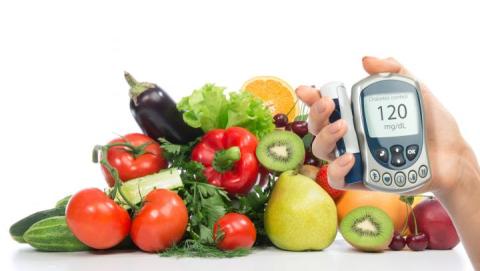
Diabetes affects almost 500 million people globally and is a major cause of blindness, kidney failure, heart attacks, stroke and lower limb amputation. Diabetes can be treated and its complications avoided or delayed with diet, physical activity, medication, regular screening, education and treatment for complications.
Winnie Nzioka, 21, a registered nutrition expert working in Embu Level V hospital, Kenya, says that, “diet covers 60% in managing the condition. This is followed by diabetes education which covers 20%, with medication and physical activity covering 10% each. Therefore for successful management of the condition, it is critical that persons with diabetes receive good and frequent dietary advice and follow-up.”
What are the kinds of foods someone with diabetes should eat? She advices on the following tips to manage the diabetes nutritionally.
- A low carbohydrates diet. This can be achieved by eating whole grain or starch products. These include brown products such as bread and wheat flour. If the whole grain products are not available one can feed on white products such as rice and mashed potatoes but in smaller quantities such as one glass of cooked rice or mashed potatoes or a quarter of a plate.
- Proteins including animal and plant proteins should be taken in moderation. In one plate of a meal the proteins should cover a quarter.
- The green vegetables help in enhancing digestion hence reducing constipation and should cover the remaining half of the plates and be included in all meals.
- It is advisable that one can consume any kinds of fruits but it should be done one hour before or after a main meal. Also one should not consume a large fruit entirely but should cut it into half. For a medium sized fruit like a mango or orange one can consume all at one sitting. For juices it is advised that one can prepare juice at home using locally available fruits.
“While diet is such an important component in successful management of the condition, adherence to dietary management is quite low in some regions with only 55% of patients visiting our clinic adherent,” she says.
- There are diet sheets which a nutritional expert prepares for the client and instructs them how to follow the diet sheets. They contain meal patterns on how to feed, the frequency and the time on when and what to feed.
- Electronic glucometer machines are also advised if one can acquire one for home use. This helps one to closely monitor the blood sugar levels.
- Persons with diabetes are advised to be in close contact with a nutritional expert and where possible they should interact on a monthly basis.
One should avoid the following foods.
- A person with diabetes should avoid sugary and sweetened products. These products include cakes, biscuits, commercial juices and sodas including diet coke.
- Fermented foods including yoghurt and fermented porridge are also discouraged. This is because the complex sugars are broken down during fermentation process to simple sugars which are easily absorbed in the gut causing a spike in blood sugars.
- Diabetics are also discouraged to consume foods with high fat content. High fat can result in rapid weight gain and other diseases such as high blood pressure. While preparing meals it is better to prepare with oils than fats since fats contain high levels of cholesterol.
- Whereas some guidelines advise on little alcohol consumption, it is better to avoid alcohol entirely if one can. This is because alcohol causes inconsistency in blood sugar levels especially if one is a frequent user.
- Smoking cigarettes is heavily discouraged. Cigarettes increase the risk of complications and other illnesses such as pneumonia.
- It is also advised that one should not skip meals and one should eat every three hours but in small feeds.
“Persons with diabetes should engage in moderate exercise like brisk walking, rope skipping, jogging and aerobics. One should avoid heavy weight lifting exercise and if one is to do exercise they should eat a snack every 45 minutes of continuous exercise,” she says.
“They should also be on the check out for hypoglycemia (low blood sugar) which can be recognized by shaking, rapid heartbeat, irritability, chills, excessive sweating, dizziness, blurred vision and confusion. It can be corrected by eating a sugary product. Someone also has to seek medical care urgently,” says Winnie.